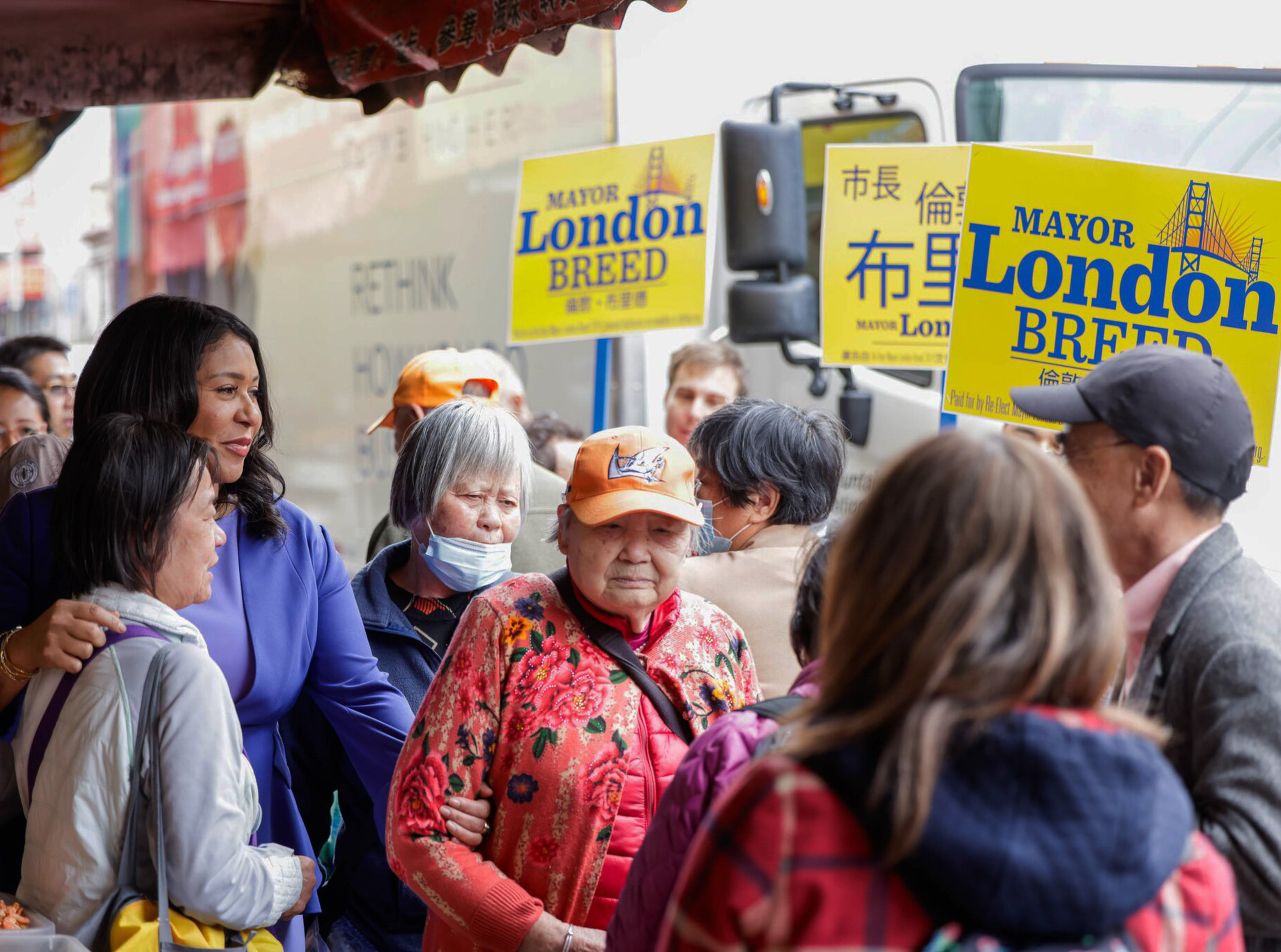Stow away the flip-flops and shorts, and bring out the campaign signs and buttons. Fall is almost here, which means a hurricane of political mayhem is about to hit.
The mayor’s race, supervisor contests, and a dizzying array of propositions are set for the November ballot, so a cyclone of money, media, messaging, door-knocking, rallying, mud-slinging, and speeches is descending. And that’s not even taking into account what’s likely to be a vicious presidential contest.
Here are the most important local matters to consider as the political season ramps up.
A few remaining endorsements
Many of the most important endorsements have been doled out. Mayor London Breed and a swath of moderates have the local Democratic Party’s stamp of approval, arguably the most important endorsement in town. The sitting city leader also snatched the police union’s endorsement, while her challenger Mark Farrell got the nod from the firefighters (opens in new tab).
But there are a few more life rafts that could offer advantages to candidates, including endorsements from media outlets such as the San Francisco Chronicle, which chose (opens in new tab) Breed for mayor in 2018. Others will come from the San Francisco Examiner and Sing Tao Daily, the largest local Chinese newspaper, which has tilted toward progressive endorsements in recent years.

Yale politics professor Kevin DeLuca said the impact of these endorsements is debatable. But a shock endorsement — say, the Chronicle choosing not to support Breed again — could move the needle in the election.
“Those kind of surprising endorsements [are] a cue to voters that something is going on here,” DeLuca said. “The surprising-ness is key.”
A possible — but unlikely — scenario that would have a major impact would be a heavy-hitter such as Vice President Kamala Harris or Speaker Emerita Nancy Pelosi weighing in on the mayor’s race.
Consolidating the Chinese vote
There are just over two months left for the four major mayoral candidates to woo the all-important Chinese vote. Breed, Farrell, Board of Supervisors President Aaron Peskin, and nonprofit executive Daniel Lurie have tried varying approaches to woo a group that makes up one-quarter of San Francisco’s population.
While Chinatown offers a sturdy base of support for mayoral candidates, there will almost certainly be a continued effort to win a wider pool of voters on the city’s west side, an analysis by The Standard found.

Farrell and Lurie have planted campaign offices on the west side — in, respectively, the West Portal and Inner Sunset — a sign that they’re prioritizing the voting bloc. However, Breed has appointment powers, which she could use to her advantage in the remaining months to prop up certain members of the Chinese political community. And Peskin, who is running on the progressive track, has strong name recognition in the Chinese community.
University of San Francisco politics professor James Taylor predicts that the advantage will go to Breed, considering her recent actions, such as a push for pandas to come from China.
“She has gone out of her way to connect with the Chinese community,” Taylor said. “She knows where the money is. She knows where the votes are.”
A bang-out message from progressives
Even analysts critical of the moderate camp are asking: What do progressives stand for in this election? Will the messaging after the March primary, when moderates dominated local Democratic Party seats and ballot measures, repeat itself?
“I don’t think progressives have presented a competing vision for San Francisco,” said Jim Ross, a political consultant who recently created an anti-Farrell website accusing the candidate of being part of the MAGA camp.

“What does it mean to be a progressive in San Francisco?” Ross asked. “What is that? Is it holding billionaires accountable? Putting more money into homelessness? Pushing back on the city as a tech laboratory?”
Meanwhile, he said, the moderate camp has a clear message around combatting homelessness and bolstering public safety.
Ross noted Peskin’s recent foray into legislation that will attempt to protect small businesses in the Fillmore, an issue that has raised questions about a venture capitalist’s ability to quickly snatch up parcels in the neighborhood and transform its character. But, Ross said, a neighborhood fight over businesses and real estate interests needs to be part of a broader set of messaging by progressives.
